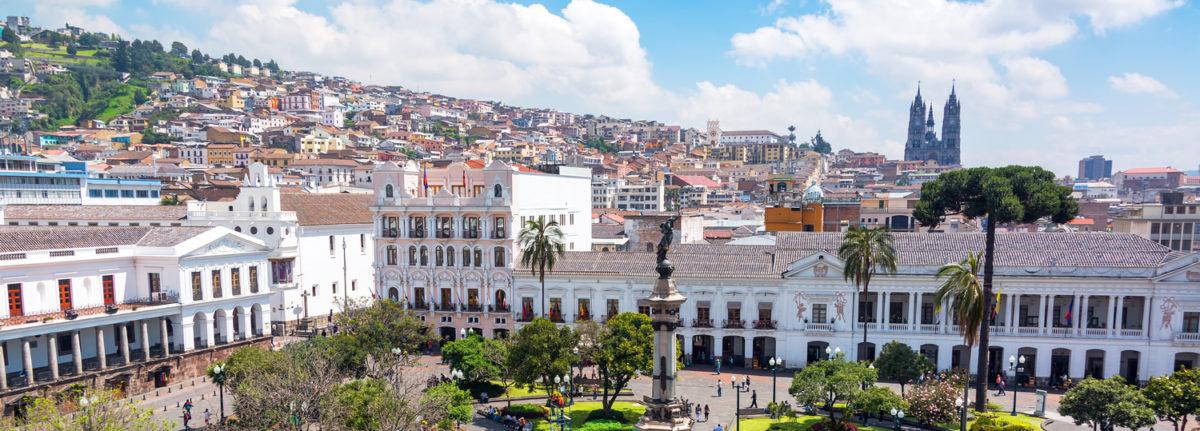Translated to English by Richard Gabela on March 5, 2025, from the original work Una Dama Imaginaria by Juan Bautista de Aguirre (1725–1786) of Daule, Ecuador. This poem was published posthumously in Poesías y obras oratorias (1943), but it was written during Aguirre’s lifetime.
Continue reading “An Imaginary Lady by Juan Bautista de Aguirre”Category: Translations
To My Firstborn by Joaquín Gallegos Del Campo
Translated to English by Richard Gabela on March 4, 2025, from the original work A mi primogénito by Joaquín Gallegos Del Campo (1873–1910) of Guayaquil, Ecuador. This poem was published posthumously in Mis recuerdos: poesías líricas y cuentos en prosa (1912), a collection compiled by his widow, Emma Lara Calderón.
Continue reading “To My Firstborn by Joaquín Gallegos Del Campo”The Beauty Mark by Nicolás Augusto González
Translated to English by Richard Gabela on March 3, 2025, from the original work “El Lunar” by Nicolás Augusto González (1858–1918) of Guayaquil, Ecuador.
Continue reading “The Beauty Mark by Nicolás Augusto González”Theory of the Flame by David Ledesma Vásquez
Translated to English by Richard Gabela on March 2, 2025, from the original work “Teoría de la Llama” by David Ledesma Vásquez (1934–1961) of Guayaquil, Ecuador.
Continue reading “Theory of the Flame by David Ledesma Vásquez”The One and Only Love: A Short Story by Luis Aníbal Sánchez
Translated to English by Richard Gabela, completed on November 16, 2024, from the original work “El amor único” by Luis Aníbal Sánchez (1902–1922) of Ecuador. I have translated the title of the story as “The One and Only Love.” The story takes place in rural Ecuador, where social class distinctions between landowners (“masters”) and laborers were very pronounced in the early 20th century (the story is dated 1921). This post includes my English translation, followed by a glossary, a translator’s note, and the original Spanish version of the story.
Continue reading “The One and Only Love: A Short Story by Luis Aníbal Sánchez”The Montuvio by Jerónimo Orión Llaguno Márquez
The Montuvio by J. Orión Llaguno was originally published in 1926 and offers a vivid portrayal of the montuvio, an iconic figure of Ecuador’s rural landscape. Through a blend of prose and verse, Llaguno explores the customs, lifestyle, and character of the montuvio, likening him to the guajiro of Cuba and the llanero of Venezuela. This evocative piece reflects Llaguno’s deep connection to the culture and identity of the Ecuadorian countryside, capturing the spirit of its people and their ties to the land. My translation is followed by a glossary, an Afterword, and the original Spanish version.
Continue reading “The Montuvio by Jerónimo Orión Llaguno Márquez”Flame on the Corner by Marco Antonio La Mota
Translated to English by Richard Gabela on September 26, 2024, from the original work “LLAMA EN LA ESQUINA” by Marco Antonio La Mota (Unknown–1946) of Guayaquil, Ecuador. I have translated the title of the poem as “Flame on the Corner.”
Continue reading “Flame on the Corner by Marco Antonio La Mota”Seventeen Stab Wounds Ain’t Nothing by Pedro Gil Flores
Translated to English by Richard Gabela on September 17, 2024, from the original work “Diecisiete puñaladas no son nada” by Pedro Gil Flores (1971-2022) of Manta, Ecuador. I have translated the title of the poem as “Seventeen Stab Wounds Ain’t Nothing.”
Continue reading “Seventeen Stab Wounds Ain’t Nothing by Pedro Gil Flores”The Chulla Romero y Flores by Jorge Icaza
A novel by Jorge Icaza (1906-1978). Translated by Richard Gabela
Continue reading “The Chulla Romero y Flores by Jorge Icaza”Protest by Zaida Letty Castillo
Translated to English by Richard Gabela on April 8, 2024, from the original work “Protesta” by Zaida Letty Castillo de Saavedra (1890-1977) of Guayaquil, Ecuador. I have translated the title of the poem as “Protest.”
Continue reading “Protest by Zaida Letty Castillo”Night of Sorrow in the Mountains by Numa Pompilio Llona
Translated to English by Richard Gabela on April 20, 2024, from the original work “Noche de dolor en las montañas” by Numa Pompilio Llona (1832-1907) of Guayaquil, Ecuador. I have translated the title of the poem as “Night of Sorrow in the Mountains.”
Continue reading “Night of Sorrow in the Mountains by Numa Pompilio Llona”My Soul on My Lips by Medardo Ángel Silva
Translated to English by Richard Gabela on April 20, 2024, from the original work “El alma en los labios” by Medardo Ángel Silva (1898-1919) of Guayaquil, Ecuador. I have translated the title of the poem as “My Soul on My Lips.”
Continue reading “My Soul on My Lips by Medardo Ángel Silva”Juantodonada by Waldo Calle Calle
Translated to English by Richard Gabela on April 18, 2024, from the original work “Juantodonada” by Waldo Calle Calle (1951) of Cojitambo, Ecuador. The title ‘Juantodonada’ uniquely combines ‘Juan’ (John), ‘todo’ (everything), and ‘nada’ (nothing), reflecting a common practice in Spanish-speaking countries to create descriptive nicknames. This title encapsulates the themes of the poem—’John, who is everything and nothing’—and has been preserved to maintain its profound cultural significance.
Continue reading “Juantodonada by Waldo Calle Calle”Guayaquil of My Loves by Lauro Dávila Echeverría
Translated to English by Richard Gabela on April 17, 2024, from the original work “Guayaquil de mis amores” by Lauro Dávila Echeverría (1885-1968) of Pasaje, El Oro, Ecuador. I have translated the title of the lyrics as “Guayaquil of My Loves.”
Continue reading “Guayaquil of My Loves by Lauro Dávila Echeverría”Bronze Bells by Rafael Larrea Insuasti
Translated to English by Richard Gabela on April 16, 2024, from the original work “Campanas de bronce” by Rafael Larrea Insuasti (1942-1995) of Quito, Ecuador. I have translated the title of the poem as “Bronze Bells.”
Continue reading “Bronze Bells by Rafael Larrea Insuasti”
